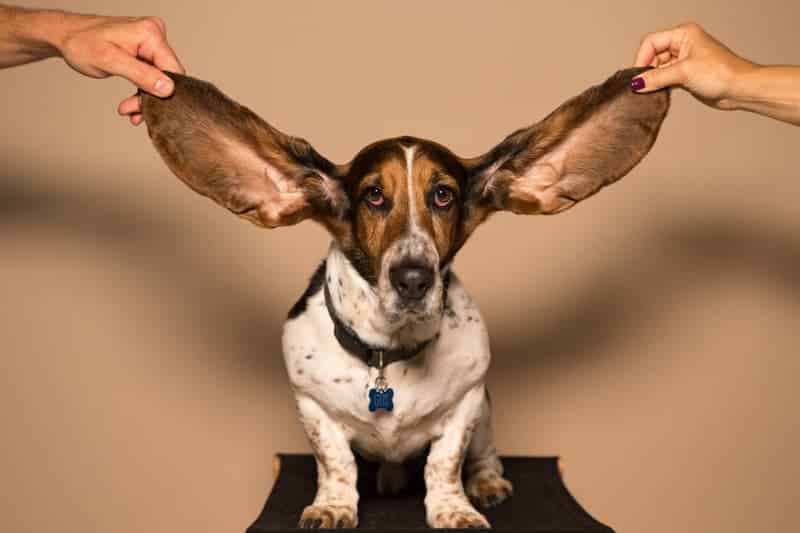
Overview
Have you ever had someone tell you stop chewing so loudly? While you might have immediately assumed that person was just being overly sensitive, there’s actually a name for the disorder where certain sounds trigger a negative response: misophonia.
People who have misophonia have an uncontrollable reaction to sounds that most people don’t even think about: chewing, breathing, and yawning. Hearing those sounds incites a fight-or-flight response, causing the person to get enraged or need to leave the situation. This is why the disorder was literally called “hatred of sound” (misophonia) when it was named in 2001.
People who have misophonia have an uncontrollable reaction to sounds that most people don’t even think about: chewing, breathing, and yawning. Hearing those sounds incites a fight-or-flight response, causing the person to get enraged or need to leave the situation. This is why the disorder was literally called “hatred of sound” (misophonia) when it was named in 2001.
Who can get Misophonia?
Since misophonia is still relatively unknown, it’s hard to say what percentage of the population suffers from it. Many people who suffer from misophonia may not report it to their doctor since they don’t realize it’s a disorder, and not all healthcare providers recognize it as a disorder.
Misophonia can result in isolation and deteriorate mental health in the worst cases when the sufferer has to stay out of most situations that involve other people due to the triggering noises.
Misophonia seems to appear around the age of 12, but the reason why it appears is still unknown. According to a study of 195 subjects who reported having misophonia, 93% reported chewing as a trigger, and 86% felt anger as the response to the trigger, prompting 84% of subjects to leave the situation to get away from the sound.
Misophonia can result in isolation and deteriorate mental health in the worst cases when the sufferer has to stay out of most situations that involve other people due to the triggering noises.
Misophonia seems to appear around the age of 12, but the reason why it appears is still unknown. According to a study of 195 subjects who reported having misophonia, 93% reported chewing as a trigger, and 86% felt anger as the response to the trigger, prompting 84% of subjects to leave the situation to get away from the sound.
Signs & Symptoms
Misophonia is characterized by a strong emotional and/or physiological reaction to a sound that shouldn’t normally cause that kind of reaction, such as chewing, typing, yawning, or breathing. These auditory signals are confused by the central nervous system, resulting in an abnormal reaction to that particular sound.
In a study in Britain of adults with and without misophonia, they found that those with misophonia reported the sounds of eating and breathing as very disturbing in comparison to typically disturbing sounds like screaming. The rating of these commonly “disturbing” sounds and “neutral” sounds (like rain or wind) were pretty much equal between those with and without misophonia. The big difference was in “common” sounds like breathing and chewing, since the people with misophonia had physiological reactions to these sounds, such as sweating and an increased heart rate.
Misophonia can get to the point where sufferers can’t be in the same room as anyone else, especially not when eating. The resulting isolation affects overall lifestyle and mental health, which is why it’s considered a disorder by some researchers since it can greatly impact someone’s life.
In a study in Britain of adults with and without misophonia, they found that those with misophonia reported the sounds of eating and breathing as very disturbing in comparison to typically disturbing sounds like screaming. The rating of these commonly “disturbing” sounds and “neutral” sounds (like rain or wind) were pretty much equal between those with and without misophonia. The big difference was in “common” sounds like breathing and chewing, since the people with misophonia had physiological reactions to these sounds, such as sweating and an increased heart rate.
Misophonia can get to the point where sufferers can’t be in the same room as anyone else, especially not when eating. The resulting isolation affects overall lifestyle and mental health, which is why it’s considered a disorder by some researchers since it can greatly impact someone’s life.
Diagnosis & Treatment
Since research still hasn’t even definitively assessed the causes and pathophysiology of misophonia, there is no treatment or cure. Those with misophonia may find talk therapy helpful, noise-blocking headphones (or headphones that provide a soothing sound), or lifestyle changes in diet and exercise to help control the anger response.
As more information about misophonia is discovered, those who suffer from it can find support and the latest research from Misophonia Association and Misophonia Awareness.
As more information about misophonia is discovered, those who suffer from it can find support and the latest research from Misophonia Association and Misophonia Awareness.
Sources and More Information
BMJ Journals, Journal of Neurology, Neurosurgery & Psychiatry, “Misophonia: A Disorder of Emotion Processing of Sounds” by S. Kumar, O. Hancock, T. Cope, W. Sedley, J. Winston, and T.D. Griffiths. https://jnnp.bmj.com/content/85/8/e3.32
Harvard Health Publishing: Harvard Medical School, “Misophonia: When sounds really do make you ‘crazy’” by James Cartreine, PhD. https://www.health.harvard.edu/blog/misophonia-sounds-really-make-crazy-2017042111534
STAR Institute for Sensory Processing Disorder, “Misophonia” https://www.spdstar.org/basic/misophonia
Harvard Health Publishing: Harvard Medical School, “Misophonia: When sounds really do make you ‘crazy’” by James Cartreine, PhD. https://www.health.harvard.edu/blog/misophonia-sounds-really-make-crazy-2017042111534
STAR Institute for Sensory Processing Disorder, “Misophonia” https://www.spdstar.org/basic/misophonia


